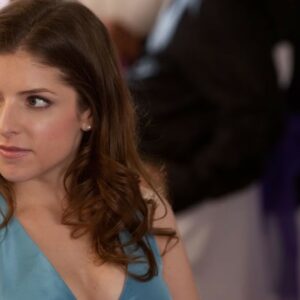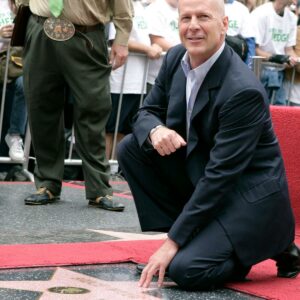Introduction
Mary J. Blige, an iconic figure in R&B, whose powerful voice and soul-stirring lyrics have garnered her a place in music history, made her first foray into acting in the 2001 film Prison Song. As one of the most influential artists of her generation, Blige’s transition from music to acting represented a bold leap into uncharted territory. The film, though not a major box-office success, marked a pivotal moment in Blige’s career. It was more than just an acting role; it was a defining step in her journey as a multi-dimensional artist. This article will explore Mary J. Blige’s role in Prison Song, the context of the film, her performance, and the lasting impact it had on her career trajectory.
1. Mary J. Blige’s Transition from Music to Acting
Mary J. Blige’s status as a queen of R&B is undeniable. By the time she entered Prison Song, Blige had already established herself as a global music sensation, known for her raw, emotional ballads and her unique blend of hip-hop, soul, and R&B. Her 1992 debut album What’s the 411? catapulted her to fame, and over the years, she solidified her place in the pantheon of the genre. As a woman whose personal struggles, triumphs, and vulnerability had been the backbone of her music, Blige’s artistic identity had always been rooted in authenticity.
But in 2001, Blige sought to push her creative boundaries even further by stepping into the world of acting. The film industry, particularly Hollywood, has long been known for its lack of opportunities for African American actresses, but Blige was undeterred. Prison Song was to be her first acting venture, and it was an opportunity to expand her artistry in a way that was both exciting and challenging.
Making the leap from music to acting is never easy, particularly for someone with the public profile of Blige. Musicians often find themselves typecast when they try to transition into film, with audiences expecting them to play versions of themselves or only taking roles that align with their musical persona. For Blige, this was not only a chance to prove that she could act, but also to show that she was more than just a singer. The film offered her the opportunity to explore deeper, more dramatic emotions, and to challenge herself in new creative ways. She was leaving behind the comfort of the studio and entering a new arena where her ability to convey emotion would have to be honed in a different medium.
Blige’s decision to pursue acting also reflected a natural evolution in her career. As an artist whose music has always been deeply introspective, touching on themes like pain, empowerment, and resilience, acting allowed her to explore these themes from a different perspective. But the process of stepping into a new industry came with its own set of challenges. As a newcomer to acting, Blige had to quickly learn the intricacies of the craft, including how to express complex emotions without the benefit of music. But her raw emotional depth, which had been one of her greatest assets in music, would serve her well in this new creative endeavor.
2. The Plot and Context of Prison Song
Prison Song was directed by Darnell Martin and was a poignant exploration of the U.S. justice system, focusing on the impact of incarceration on families and individuals. The film tells the story of a young man named Nathan (played by actor and rapper Q-Tip) who, after being wrongfully convicted of a crime, becomes ensnared in the harsh realities of prison life. His journey is complicated not only by his experiences within the justice system, but also by the emotional burden carried by his family, especially his mother, played by Blige.
Blige’s character, the mother of Nathan, plays a pivotal role in the film. As a mother, she is caught between her deep love for her son and the anguish of watching him be consumed by a system that seems to have no regard for his humanity. The film highlights the themes of family, justice, and redemption—topics that were also central to Blige’s own music. Blige’s portrayal of a mother struggling with the loss of her son to the prison system was a natural fit, considering her reputation for delivering emotionally charged performances that resonate deeply with her audience.
The choice of Prison Song as Blige’s acting debut was significant because it allowed her to explore themes that had been central to her musical identity. Throughout her music, Blige had often confronted issues of personal struggle and resilience, and this film gave her an opportunity to channel that emotional depth into a different medium. The film’s focus on the corrupting effects of the justice system and the ways in which it destroys families spoke to larger societal issues, making it a timely piece of work. For Blige, it was an opportunity to use her platform to speak on issues of social justice while also expanding her creative range.
3. Mary J. Blige’s Performance and Reception
Blige’s performance in Prison Song was met with mixed reviews, though many critics praised her for her ability to take on such a challenging role. As a first-time actress, her performance was understandably raw, but it was also authentic. Her emotional intensity, which had long been her trademark in music, translated well to film. Blige’s portrayal of a mother torn between love and despair resonated deeply with audiences, even though the film itself was not widely seen or highly rated.
Blige’s performance was particularly praised for its emotional depth and the vulnerability she brought to her role. The character of the mother is one that requires an actress to display a range of emotions, from grief to hope, and Blige was able to navigate these emotional waters with skill. In particular, her scenes with Q-Tip, who played her son Nathan, were highlights of the film. The chemistry between the two actors, both of whom were newcomers to acting, gave the film a raw, authentic feel.
However, not all reviews were as positive. Some critics felt that Blige’s performance was not as nuanced as it could have been and that the film as a whole lacked focus. It is not uncommon for musicians-turned-actors to receive criticism for their performances, as audiences often bring preconceived expectations to the table. In Blige’s case, her previous fame as a musician worked against her, as some viewers had a difficult time seeing her as anything other than a singer. Despite this, Blige was able to establish herself as a credible actress, even if the film itself did not garner the widespread attention it deserved.
Blige’s performance in Prison Song was a testament to her range as an artist. Though she had initially built her reputation on her musical abilities, the film showed that she was more than just a singer. She had the depth and emotional intelligence to bring complex characters to life on screen, setting the stage for more acting opportunities in the future.
4. The Impact of Blige’s Acting Career
While Prison Song was not a commercial success, it proved to be an important stepping stone in Blige’s acting career. Her role in the film garnered attention and helped to open doors for future acting opportunities. In the years following Prison Song, Blige would go on to take on more notable roles in both film and television, including in projects such as Mudbound (2017), for which she received critical acclaim for her performance, and The Umbrella Academy (2019), a hit Netflix series where Blige showcased her versatility as an actress.
Her success in Mudbound, in particular, solidified her place in Hollywood as a credible actress. The film, set during the Jim Crow era in the American South, featured Blige as Florence Jackson, a sharecropper’s wife who struggles to keep her family together during a time of great social unrest. Her performance was widely praised, and she received several award nominations, including an Academy Award nomination for Best Supporting Actress. This recognition marked a significant shift in Blige’s career, from music icon to a respected figure in the film industry.
The success of Blige’s acting career also opened doors for other musicians looking to transition into acting. Blige’s ability to navigate this transition with grace and authenticity set a precedent for other artists. She proved that musicians could successfully make the leap into acting, and that their artistry could translate into other forms of creative expression.
5. The Legacy of Prison Song in Blige’s Career
Although Prison Song was not the breakout hit that would have launched Blige into the Hollywood stratosphere, it remains a crucial part of her career trajectory. The film laid the foundation for the more prominent roles she would go on to land in the years that followed. It is an important reminder of her willingness to take risks and explore new creative avenues, even if they didn’t always result in immediate commercial success.
Prison Song also serves as a reflection of Blige’s artistic evolution. Throughout her career, Blige has continuously pushed the boundaries of her artistry, and Prison Song was one of the first examples of her doing so outside of the music industry. The film allowed her to explore new facets of her creative identity, and while her role as the mother of a young man caught in the justice system might have been her first, it laid the groundwork for future successes in film and television.
Conclusion
Mary J. Blige’s acting debut in Prison Song was not the instant hit that some might have hoped for, but it was a significant milestone in her career. The film demonstrated Blige’s willingness to push her creative boundaries and explore new artistic territories. It was the beginning of an exciting new chapter in her life, one that would ultimately see her become a respected actress in addition to her legendary status in music. Prison Song remains an important part of Blige’s legacy, both as a stepping stone into the world of acting and as a testament to her versatility as an artist.





